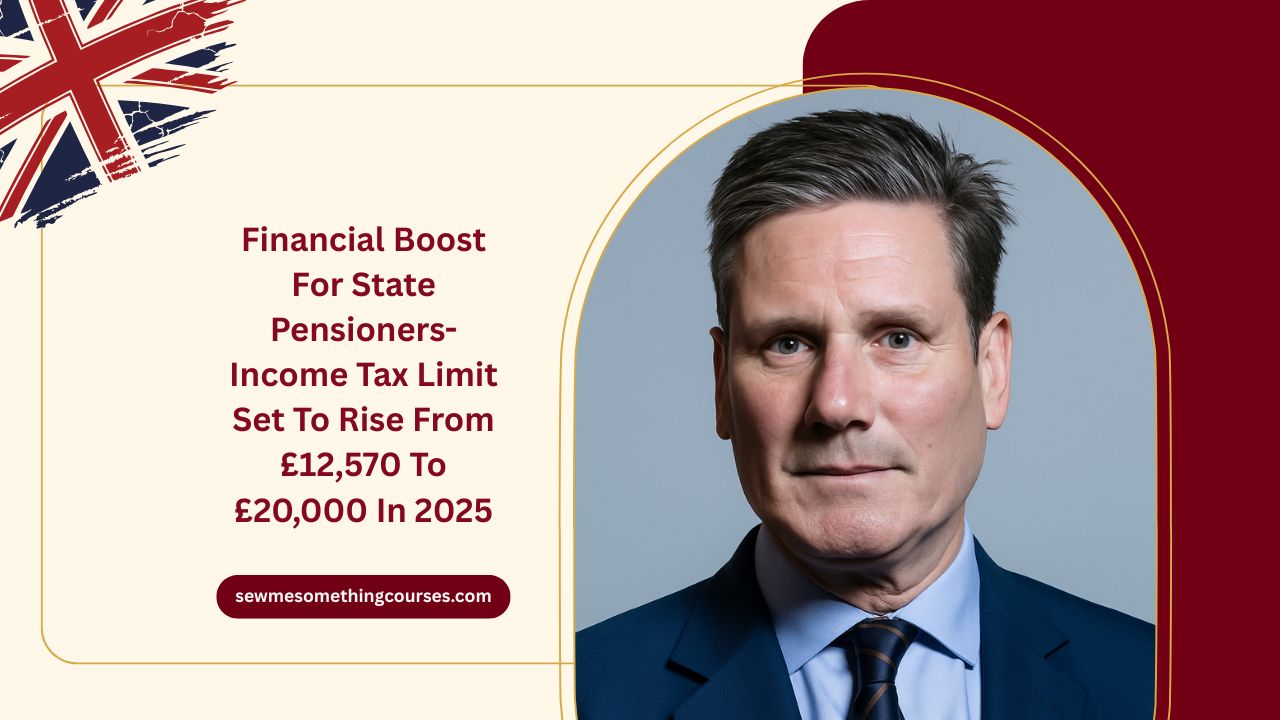A significant shift is on the horizon for UK state pensioners, as the income tax personal allowance is poised to rise from £12,570 to £20,000.
This proposed change, part of an ongoing petition initiated by Alan David Frost, has gained substantial traction, with more than 200,000 signatures in support as of June 2025.
This article delves into the details surrounding this proposal, the potential benefits, and the broader impact on pensioners, low-income earners, and the UK economy.
What is the Personal Tax Allowance?
The Personal Allowance is the amount of income individuals can earn before they are required to pay income tax.
As of now, the limit stands at £12,570, but with the proposed increase to £20,000, the government aims to offer a much-needed financial boost to several sections of society, particularly low-income earners and pensioners.
Since its freeze in 2021, the Personal Allowance has failed to keep up with inflation or wage growth, causing many individuals to be pushed into higher tax brackets.
This phenomenon, known as fiscal drag, has increased the tax burden on workers, especially those in the lower-income brackets.
Why Increase the Personal Tax Allowance?
1. Benefits for Low Earners
Raising the personal allowance to £20,000 would significantly help low earners, allowing them to keep more of their income without the burden of taxes. Many individuals currently living paycheck to paycheck would experience relief from tax deductions, increasing their disposable income.
2. Support for Pensioners
Many retirees rely on their State Pension, and this increase could potentially reduce or eliminate tax on pensions. For older citizens living on fixed incomes, this change could be transformative, ensuring they retain more of their hard-earned money.
3. Economic Growth Potential
With more disposable income in the hands of individuals, particularly pensioners and low earners, consumer spending is likely to rise. This uptick in spending could contribute to a boost in the economy, stimulating demand for goods and services.
4. Reduced Dependence on Benefits
As more people become financially independent due to a higher tax-free income limit, fewer individuals may need to rely on government benefits. This could reduce the financial strain on the public welfare system.
Government’s Response & What’s Next?
Petition Status & Government Action
In response to the growing public support for the petition, Parliament is now required to consider it for a debate. Below are key milestones reached:
| Milestone | Requirement | Action Taken |
|---|---|---|
| 10,000 Signatures | Government response required | Acknowledgment of petition |
| 100,000 Signatures | Parliamentary debate consideration | Discussion underway |
| 200,000 Signatures | Petition under active consideration | Debate now imminent |
As of June 2025, the petition has surpassed the critical 200,000 signatures mark, making it a strong contender for parliamentary debate. With public backing continuing to rise, further discussions are expected in the coming months.
Government’s Position
The previous Conservative government had frozen the Personal Allowance until 2028, a move that has kept the threshold static despite inflation and wage increases.
Should the proposal to raise the limit pass, the government will likely need to find alternative revenue sources to make up for the projected tax shortfall.
Who Would Benefit from the £20,000 Tax Limit?
1. Low Earners
Individuals earning up to £20,000 would no longer pay any income tax, significantly improving their financial situation.
2. Pensioners
Many pensioners, especially those living solely on State Pension, would benefit from no longer being taxed, leaving them with more money to cover living costs.
3. Middle-Class Workers
Middle-income workers could also stand to benefit, with savings of up to £1,486 annually in tax reductions.
Challenges & Concerns
1. Loss of Tax Revenue
Raising the personal allowance to £20,000 could result in a £40-50 billion loss in tax revenue annually. This loss would likely affect public services like the NHS, welfare, and education, putting pressure on the government to identify new funding sources.
2. Possible Tax Increases Elsewhere
In an effort to offset the lost tax revenue, the government may consider raising other taxes, such as VAT or National Insurance. This would help balance the finances but may put further pressure on individuals across various income levels.
3. Inflation Risk
While increasing disposable income can boost consumer spending, there is a risk that more money in circulation could lead to higher consumer prices, exacerbating inflation.
The proposal to raise the personal tax allowance to £20,000 could be a crucial step in providing much-needed financial relief for low-income earners and pensioners.
With potential benefits such as increased disposable income, reduced reliance on government benefits, and a boost to the economy, the move has garnered significant public support.
However, the government must carefully consider the fiscal impact and explore alternative revenue sources to maintain public services.
FAQs
Who will benefit from the £20,000 tax allowance?
The increase will benefit low earners, pensioners, and middle-class workers, with many no longer needing to pay income tax.
What are the potential challenges of raising the personal allowance?
The main challenges include a loss of tax revenue estimated at £40-50 billion per year, potential increases in other taxes, and inflation risks.
When will the £20,000 personal allowance come into effect?
While discussions are underway, the increase is expected to take effect in 2025, contingent on government approval and final legislation.

